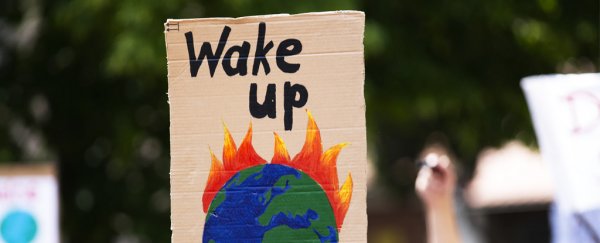A record 212 people who defend our land and environment were killed last year, reports Global Witness - an international NGO dedicated to preventing extractive industries from infringing on human rights. This is an average of more than four people a week - higher than the death rate of UK and Australian soldiers deployed in war zones.
Victims include not only activists, but community members and journalists. Two journalists, Maratua Siregar and Maraden Sianipar were stabbed to death for reportedly mediating a land dispute between locals and a palm oil company on 30 October 2019, and so far no trial has taken place.
In Kazakhstan, wildlife ranger Yerlan Nurghaliev's dedication to protecting saiga (Saiga tatarica) - critically endangered ancient antelopes - cost him his life. He was badly beaten by poachers and later died of his injuries. In this case, three men were convicted of his murder.
Global Witness has been documenting these incidents since 2012, and claims that the findings are likely to be an underestimate due to many killings going unreported. Despite the world agreeing in 2015 to take measures to protect the vital ecosystems these people have been trying to defend for the sake of Earth's climate, these killings have only been increasing.
Other environment defenders have been silenced by death threats, sexual assault, attacks and arrests, including Turkish scientist Bülent Şık, who was jailed last year just for publishing the results of a study commissioned by the very government that arrested him. He revealed cancer risks posed by toxic pollution in western Turkey.
Six conservationists, working to protect the Asiatic cheetah (Acinonyx jubatus venaticus) in Iran, were convicted for "collaborating with an enemy state" (the US).
These appalling incidents are likely to worsen with the pandemic, the report warns.
"Governments around the world – from the US to Brazil and Colombia to the Philippines – have used the [ COVID-19] crisis to strengthen draconian measures to control citizens and roll back hard-fought environmental regulations," states the report, pointing to rules curtailing protests in even western countries like the US.
Simultaneously, extractive companies have been using the opportunity presented by lockdowns to cause more disputed destruction - such as bulldozing indigenous land in Cambodia. In Australia, a coal mine expansion that potentially threatens Sydney's water catchments was quietly approved, despite community consultation being cancelled due to the pandemic.
In Columbia, two indigenous leaders, Omar and Ernesto Guasiruma, were stabbed to death at home while isolating because of the pandemic - their relatives were also injured during the attack.
"Research is clearly showing that indigenous-managed lands have lower deforestation rates and better conservation outcomes than protection zones that exclude indigenous peoples," the report explains.
The lands in question are often highly biodiverse, like Brazil's rainforests, and therefore significant to the extinction crisis and climate-critical ecosystems that environmental science clearly shows are in need of being protected.
Yet up to 40 percent of those killed belong to these indigenous communities - people who are protecting their own homes, and by extension through our tightly interlinked environment, all of us, are winding up dead.
Only 10 percent of these types of killings resulted in conviction between 2002-2013, reported The Conversation last year, whereas the average for global convictions on homicides was 43 percent at around the same time.
Over half of the killings recorded in 2019 were from just two countries: Colombia and the Philippines.
"The relentless vilification of defenders by the [Philippines] government and widespread impunity for their attackers may well be driving the increase," states the report.
Most of these killings were connected to mining industries (50 deaths), followed by agribusiness (34 deaths) - two sectors that massively contribute towards the climate crisis. But these incidents are not just linked to climate change drivers - mining for minerals needed to transition to a green economy is causing problems, too.
The report concludes that these acts of violence, intimidation, and harassment are most prevalent when states fail to enforce environmental protections and allow companies to ignore human rights.
You can read the full report at Global Witness.
